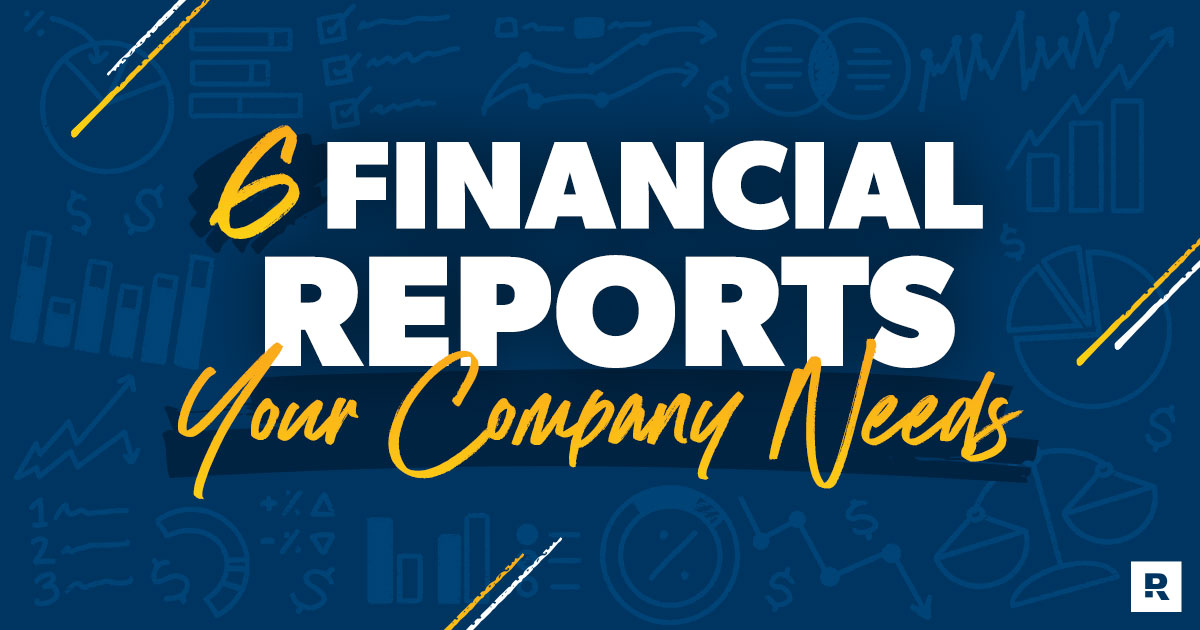
Imagine a device that could easily predict the future of your business. At your fingertips, you would have all the information needed to grow your company like never before. You wouldn’t freak about cash flow, and you would instantly spot potential problems before they got out of control.
If that sounds too good to be true, read on. Because you don’t need a crystal ball to forecast what lies ahead. By learning how to read just a few financial reports, you’ll know where your company is headed. Even better news? You don’t have to be a rocket scientist to understand them. Once you learn the basics, you’ll only need a few hours a month to get a clearer picture. Here are the six financial reports that you need to check each month.
- Profit and Loss Statement (P&L)
Also called an income statement, the P&L shows revenue minus expenses and either your net profit or loss.
You probably thought running a business sounded fun—until you realized it would actually run you. Discover the EntreLeadership System—the small-business road map that takes the guesswork out of growth.
Why you need it: For Dave, who still reads his company’s income statement each month, it gives him a quick snapshot of how each area of his business is performing. Did each department hit their revenue projections? Are leaders staying within their budgets?
- Balance Sheet
This simple document shows what your business is really worth, listing all of your assets and liabilities.
Why you need it: In one statement, you’ll see what you own, who you owe and revenue owed to you.
- Receivables Report
This report shows who owes you money, how much they owe and the age of their debt.
Quick Tip: The best policy is not to extend credit to anyone. You know how we feel about debt! If you have to, though, keep it short-term—30 days or less.
- Payables Report
This report is a quick summary of who you owe money to that has not been paid yet.
Quick Tip: It’s never a good idea to hold your money until the last second. If you owe something, pay it. We clear bills every Tuesday, which allows us to negotiate further discounts and build incredible goodwill with our vendors and suppliers.
- Checkbook Reconciliation
If you’ve ever kept a checkbook register for your personal account, this one should be a breeze. It’s just a slightly souped-up version of the one at home, showing the checks you’ve written, deposits and the balance.
Why You Need It: This is still the absolute best way to verify that your bank account balance is correct or that there are no unusual charges or errors.
- Purchase Order (PO)
This is a record of all your open purchase orders, including quantity.
Why You Need It: The PO is a simple way to quickly review what has been purchased and the cost of each item.
According to numerous surveys, the number one reason small businesses fail is because of cash flow issues, which are directly related to an owner not staying on top of the numbers and poor accounting practices. So take the few hours each month to read your financial reports. Like Dave says, it will be “one of the best investments you’ll every make.”
Related article: 6 Small-Business Money Mistakes (and How to Avoid Them)
An essential characteristic of any great leader is a willingness to learn. And one of the easiest ways to gain knowledge is with The EntreLeadership Podcast. You'll hear Dave Ramsey take calls on the toughest challenges people face every day in small business. It's everything you wanted to know about business and leadership, but didn't know who to ask. Listen now.
